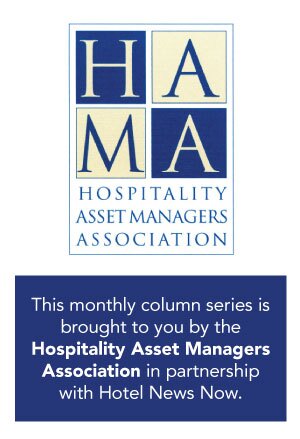One of the early scenes of the movie "Jerry Maguire" shows the protagonist sharing the details of his manifesto to the sports agency industry. The manifesto is essentially a “quality over quantity” argument that has bounced around lots of industries for decades. While the argument has merit, I found the way Jerry Maguire managed his brainstorm to be a tad self-indulgent and a whole bunch of naïve. Re-tooling a long-standing, widely held construct is no easy task. On the other hand, challenging the status quo can lead to meaningful advances. So, I present to the hotel ownership community the following mini-manifesto — a mini-festo, if you will — with optimism tempered by the notion that change is an uphill battle.
For many decades, franchisors and hotel management companies have calculated their compensation as a percentage of revenue. This makes sense to me for franchisors. They are responsible for bringing guests to our doorstep, and the rest is up to us. But why would operators be compensated off of the revenue with no responsibility to the bottom line? They are the ones responsible for the expenses. Operators would protest that they also typically receive an incentive management fee, which is based on owner returns or profitability. However, most operators also admit that they receive far less than 10% of the entirety of their annual fees from incentive management fees. So how motivating is that?

Therefore, my assertion is that an operator should be compensated from bottom-line performance. I am not suggesting that they take a percentage of the bottom line, since some contingent of hotels operate in the red for several months per year, and nobody is asking an operator to work for free. Instead, I suggest that a sliding scale be used to calculate the percentage of revenue that the operator is to receive. If the actual bottom line (for purposes of this discussion, I recommend using the gross operating profit as the bottom-line number to which to hold the operator responsible) far exceeds the budgeted GOP, then the operator gets a higher-than-normal percentage of revenue. And if the actual GOP falls far short of the budgeted GOP, then the operator gets a lower-than-normal percentage of revenue. And if the actual GOP comes relatively close to the budgeted GOP, then the operator gets a normal percentage of revenue.
Additionally, I suggest that these calculations be made monthly, not annually. Each month should stand on and be evaluated on its own performance. That way, if, for example, the first quarter is poor, then the operator is still motivated to do their best for the remainder of the year, since they still can make high percentages of revenue. And conversely, if they knock it out of the park early in the year, there is no risk that they will rest on their laurels, since they can continue to drive their fees in future months. As a caveat, it is fair to guarantee some level of compensation to the operator via a minimum monthly fee that triggers in the case that the sliding scale calculation is too low to keep an operator fully engaged.
Here is a sample of a potential sliding scale structure:

Lest you think that the operator community will reject this type of arrangement, we have discussed this with a variety of operators, and none has outright dismissed the concept. And lest you think this is pie-in-the-sky thinking, and that the results may have unintentional and/or unforeseen negative consequences, at Murphy Asset Management, we have implemented this concept in several hotels and have been very pleased with the results.
The fast thinkers of you will quickly land on the potential challenge in all of this: That is, the budget. Skeptics will surmise that operators will try to sandbag the budget so that their thresholds are easier to attain, and I cannot disagree with that concern. Therefore, the real trick is in the budgeting process. Having the final approval rights of the budget per the hotel management agreement is important. Ultimately, you want a realistic budget. If the budget is unattainable, then the operator may give up on trying to drive results. And if the budget is too attainable, then the operator will not be motivated to drive results as much as possible. Having an experienced and knowledgeable hotel consultant help you through the process of including this fee structure into your hotel management agreement and then helping land on a realistic and reasonable budget are very important elements in ensuring this model is successful.
So there you have it. My mini-festo. Operator compensation should not be based solely on operator revenue generation performance, but also on their expense management performance. Novel idea? Shockingly, yes.
Steve Steinberg is the Managing Director of Murphy Asset Management, LLC. Murphy Asset Management is a Chicago-based hotel asset management, consulting, and advisory firm focused on supporting ownership groups in concept development, construction, opening, operating, and re-positioning.
The opinions expressed in this column do not necessarily reflect the opinions of Hotel News Now or CoStar Group and its affiliated companies. Bloggers published on this site are given the freedom to express views that may be controversial, but our goal is to provoke thought and constructive discussion within our reader community. Please feel free to contact an editor with any questions or concern.
